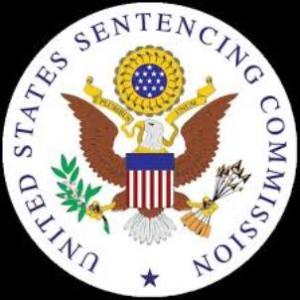Federal drug sentencing reforms adopted earlier this year by the US Sentencing Commission went into effect today. They should result in tens of thousands of federal prisoners seeing their sentences cut and being released early, as well as ensuring that future offenders are not sentenced so harshly.

Congress had an opportunity to disapprove of the sentencing reductions, but failed to act, so the changes are now in effect.
As of today, current federal drug prisoners can begin petitioning courts for sentence cuts based on what the new guidelines call for. If the courts determine they are eligible for the sentence cuts and a reduction is appropriate, the sentences will be reduced. That will result in some federal prisoners getting out early, but none will be released until a year from today.
The sentence cuts will not, though, reduce mandatory minimum sentences, which are set by Congress. Prisoners serving sentences longer than the mandatory minimum may win sentencing reductions, but not below the mandatory minimum.
(The federal sentencing reform group Families Against Mandatory Minimums provides an overview page on the move and what it means, as well as FAQ page for prisoners and their families.)
For the past two decades, the Sentencing Commission has attempted to rein in the harshly punitive impulses in Congress that led it to impose lengthy prison sentences for even low-level drug offenses in the 1980s. The federal prison population has increased more than three-fold since 1980, driven largely by the war on drugs. According to the Bureau of Prisons, the 98,482 federal drug prisoners make up 48.8% of all federal prisoners.

According to the Commission, more than 46,000 current drug prisoners will be eligible for sentence reductions through retroactive application of the revised sentencing guidelines. The Commission estimates that the sentence cuts will reduce the federal prison population by 6,500 within five years and more significantly as time goes on.
The Drug Policy Alliance (DPA) applauded the sentencing reductions, and especially the Commission's move to apply them to current prisoners.
"It makes little sense, of course, to reform harsh sentencing laws proactively but not retroactively," said Ethan Nadelmann, DPA executive director. "But that’s what politicians do when they’re scared of allowing people out of prison early. The Sentencing Commission really had no choice but to rectify the moral absurdity of keeping people locked up based on sentences that are no longer the law. What they did was right and just."
"This is an important step toward undoing some of the worst harms of the drug war by allowing people to be reunited with their families," added DPA media relations manager Tony Papa, who served 12 years in prison for a nonviolent drug offense.

Sentencing Commission Chair Judge Parris said Congress still needs to get around to passing comprehensive reforms.
"Only Congress can act to fully solve the crisis in federal prison budgets and populations and address the many systemic problems the Commission has found resulting from mandatory minimum penalties," she said. "I hope that Congress will act promptly to pass comprehensive sentencing reform legislation."
Maybe then we can actually reverse the decades-long trend of sustained growth in the federal prison population. Actually, thanks to reforms already passed by Congress, we may see the first decrease in the federal prison population announced next month, when the Bureau of Justice Statistics issues its annual prison population report. The preliminary numbers suggest that the population may have peaked in 2012.
This move by the Sentencing Commission will only accelerate that (presumed) trend, but will only result in sentence reductions for about half of incarcerated federal drug offenders. There is still more work to be done.
This work by StoptheDrugWar.org is licensed under Creative Commons Attribution-ShareAlike 4.0 International
Add new comment